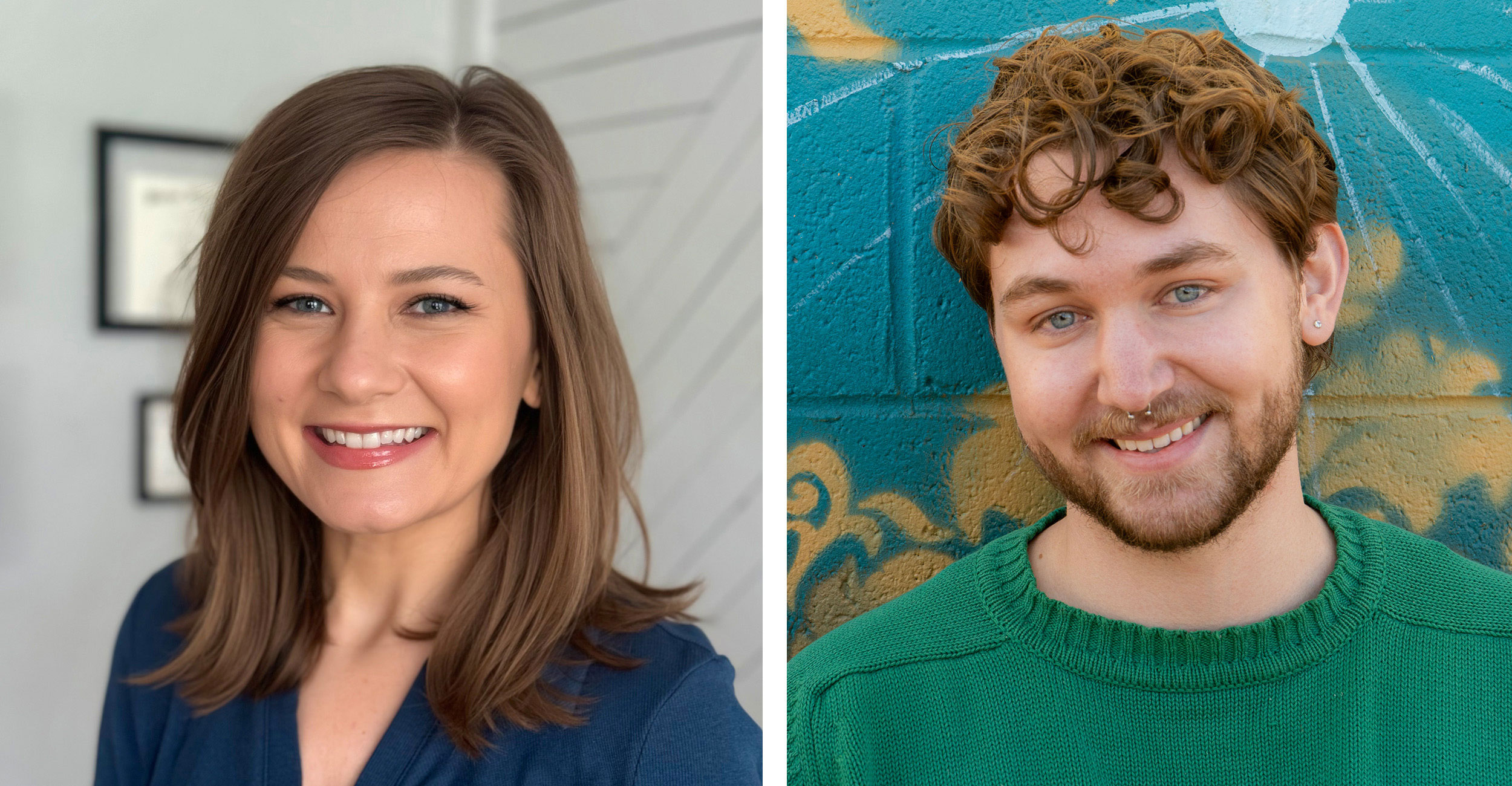
OSU-CHS grad research assistants support children affected by substance use disorders
Wednesday, April 23, 2025
Media Contact: Kayley Spielbusch | Digital Communications Specialist | 918-561-5759 | kspielb@okstate.edu
Two Oklahoma State University students are working to address the overlooked needs of children who have a parent with a substance use disorder.
Hannah Appleseth, an OSU Clinical Psychology Ph.D. student, and Quinn Leffingwell, an OSU Public Health student, are a part of the 2024-25 Albert Schweitzer Fellowship Tulsa cohort.
The Albert Schweitzer Fellowship equips graduate students with the resources and leadership skills needed in the workforce to address unmet health care needs in underserved populations. Tulsa is one of 13 program sites in the United States.
Appleseth and Leffingwell are OSU Center for Health Sciences graduate research assistants with the HEALthy Brain and Child Development study. The study's goal is to better understand brain development from pregnancy through early childhood in relation to exposure to certain substances such as opioids, alcohol and tobacco as well as other environmental, social and biological factors. OSU-CHS is one of the 25 HBCD sites across the country.
Appleseth and Leffingwell’s work with HBCD inspired their project with the Schweitzer Fellowship, which is to support families affected by substance use disorders, primarily children.
Appleseth became aware of the need for greater support in her clinical research as a psychotherapist trainee.
“I noticed a recurring theme. Many of the treatments, interventions and resources focused on providing the parent with support, rather than understanding the child’s unique experiences and providing specific support for them,” she said.
A significant portion of Appleseth’s clients facing substance use disorders grew up with a parent who also had an addiction. She saw how the development of resources and support for adolescents with parents who have substance use disorders could be crucial in preventing intergenerational substance use and psychiatric illnesses.
The opportunity to utilize her research and make a change in the community is why she applied for the Schweitzer Fellowship.
“I was motivated by the opportunity to engage in interdisciplinary work, gain leadership training and develop hands-on experience in creating and leading a community health program,” Appleseth said.
As a graduate student in public health, Leffingwell focuses on preventing disease and promoting health at the population level through policy, education and systemic interventions.
“I wanted to make a difference while using what I’ve learned,” he said. “Addiction is primarily a social problem, so we must support programs that focus on the mental health of the children of parents with substance use disorders.”
"By providing resources to support these children, we aim to mitigate the negative
impact of addiction and address a critical issue. We hope that through our support
group, we can provide education and tools to empower families."
By working with the National Center for Wellness and Recovery Addiction Recovery Clinic at OSU and utilizing a curriculum developed by the Substance Abuse and Mental Health Services Administration, Appleseth and Leffingwell are hosting support groups for children 8 to 14 years old whose parents are struggling with a substance use disorder.
Leffingwell said the program is designed to help children understand substance use disorders and talk about how it affects their lives.
“Our program combines age-appropriate stories, games and activities to help children understand substance use disorders and feel comfortable expressing their emotions,” he said, with the ultimate goal of giving them the tools they need to express and manage their feelings, develop their problem-solving skills and build a support network they can rely on.
“By providing resources and support to these children, we aim to mitigate the negative impact of addiction and address a critical issue,” Appleseth said. “We hope that through our support group, we can provide education and tools to empower families.”
The support groups will be held at Youth Services Tulsa. Currently, Appleseth and Leffingwell are in the final stages of establishing the start date to continue the support group beyond their Schweitzer year.
Those interested in learning more about the support group can email Hannah Appleseth at hannah.appleseth@okstate.edu.
